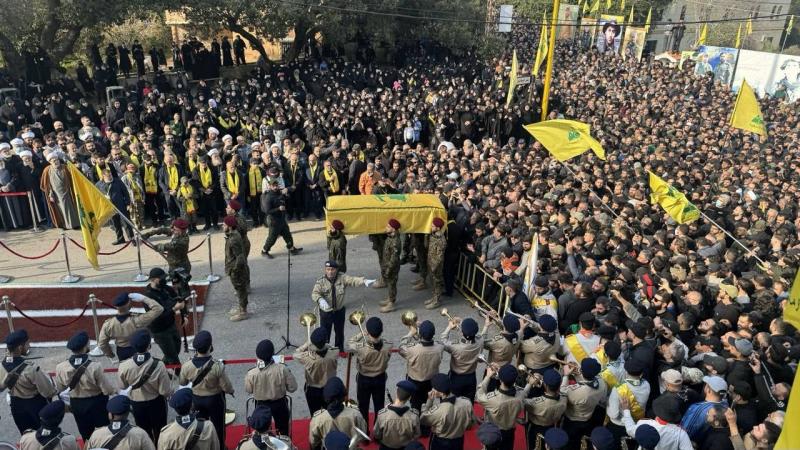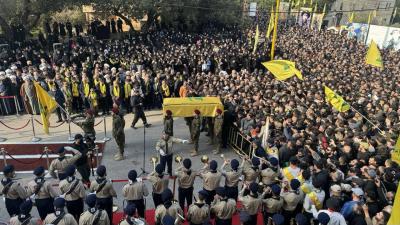The security war between the resistance and the enemy intensifies alongside military confrontations, amidst advancements in technology and the presence of collaborators on the ground. It was notably revealed yesterday that the assassination of jihadist leader Wissam Al-Tawil was carried out via the explosion of an explosive device planted near his home. It remains unclear whether the device was detonated by a drone or through an automatic triggering device.
What stood out yesterday was a report by the newspaper "Maariv," indicating that the assassination was executed through a "precise operation" involving the placement of an explosive device near his house, which sent a message that not only is the Hamas leadership in Beirut exposed and vulnerable to targeting, but also the operational leadership of Hezbollah in southern Lebanon.
In the midst of the prevailing security alert, it was also disclosed yesterday that relevant security agencies arrested a Lebanese individual suspected of collaborating with the enemy. "Al-Akhbar" learned that (M. S. H) has been under investigation by the Information Branch of the Internal Security Forces for about two weeks, after being apprehended by members of the Guard of the Speaker of Parliament who became suspicious of him while he was filming the streets surrounding President Nabih Berri's office in Ain el-Tineh in Beirut. A highly advanced electronic device was found in his possession, along with dozens of videos on his phone that appeared to survey the entire area.
During his interrogation before the Guards of the Parliament, the detainee claimed he worked for an American company under a formal contract. After being handed over to the Internal Security Forces' Information Branch, the suspect stated that he owned a communications and technology company working with "Google." However, security information indicated that the company owned by the detainee had signed a contract with a foreign company providing services to "Google" for road surveying in various regions of Lebanon, and subsequent investigations revealed connections between the company and Israel.
As the investigation with the suspect expanded, it became clear that the electronic device found with him was highly advanced and had not previously been encountered with any of the collaborators arrested earlier. Judicial sources indicated that the amount of data acquired by investigators was very large, yet the detainee, who previously had worked with the Ministry of Communications, denied any knowledge of the identity of the company he contracted with.
In the same context, the Islamic resistance distributed a statement yesterday urging residents of southern regions to be cautious of security activities by the occupying forces. The resistance's statement highlighted that "the enemy continues to seek alternatives to gather information about the resistance and the locations of its fighters in the south, particularly after losing a significant portion of the effectiveness of the surveillance and spying devices installed in its border positions due to being targeted and destroyed by the resistance."
The statement pointed out that the enemy resorts to contacting people "from phone numbers that appear to be Lebanese, via both landline and mobile networks, to inquire about certain individuals and their locations and the status of certain homes. The enemy impersonates various entities, sometimes pretending to be internal security forces, other times Lebanese General Security, or relief organizations claiming to offer assistance, among others. The caller, speaking with a fluent Lebanese accent, seeks information to verify the status of the resistance fighters in certain homes they intend to target." The resistance urged people "not to respond to the caller and to immediately hang up, as well as to swiftly report the matter to the relevant authorities."




